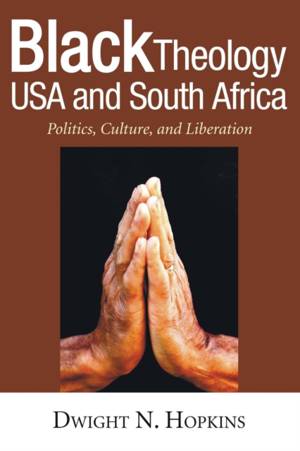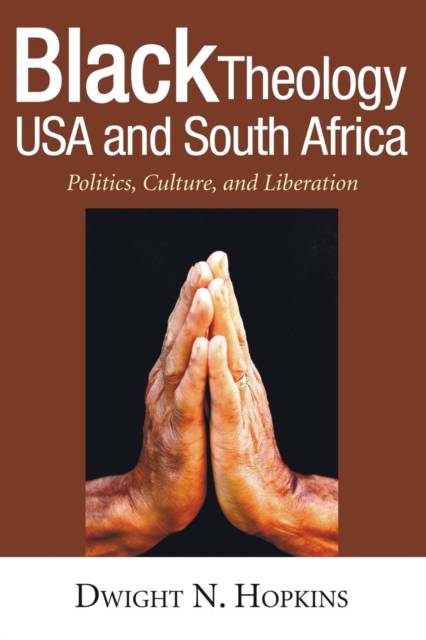
- Retrait gratuit dans votre magasin Club
- 7.000.000 titres dans notre catalogue
- Payer en toute sécurité
- Toujours un magasin près de chez vous
- Retrait gratuit dans votre magasin Club
- 7.000.0000 titres dans notre catalogue
- Payer en toute sécurité
- Toujours un magasin près de chez vous
Description
Black theology continually poses a challenge to Christian witness and faith. Through a critical analysis of leading religious thinkers, Dwight N. Hopkins explores the fundamental differences and similarities between black theology in the United States and black theology in South Africa and asks: What is the common denominator between the two? Part I examines the historical, political, cultural, and theological background of contemporary black theology in both countries. Hopkins delves into the distinctive situation of each country, focusing on civil rights, black power, and related political, cultural, and theological themes in the United States, and on civil disobedience, black consciousness, the unity of politics and culture, and political/cultural/theological themes in South Africa. Through interviews with leading black religious scholars, Part II explores these theologies in depth. Contrasting the cultural-theological trend with the political-theological trend in the USA, Hopkins explores the ideas of theologians Albert B. Cleage, James H. Cone, J. Deotis Roberts, William R. Jones, Gayraud S. Wilmore, Charles H. Long, Cecil W. Cone, and Vincent Harding. In Part III Hopkins examines the same two trends - cultural-theological and political-theological - in South Africa. Here the focus is on the impact of black consciousness and Soweto, and the works of Manas Buthelezi, Allan Boesak, Simon S. Maimela, Frank Chikane, Bonganjalo C. Goba, Itumeleng J. Mosala, Takatso A. Mofokeng, and Desmond M. Tutu. Part IV brings black theology USA and black theology South Africa into dialogue. Hopkins locates the common denominator between the tow theologies: that ""they both claim the Christian gospel as the gospel of liberation for black people struggling against racism and for a holistic humanity - physically and spiritually, politically and culturally."" He concludes by looking toward future areas of development and collaboration, arguing that an effective black theology of liberation must integrate politics and culture, insuring that the two are equal and complementary, ""two tributaries within the same current.""
Spécifications
Parties prenantes
- Auteur(s) :
- Editeur:
Contenu
- Nombre de pages :
- 262
- Langue:
- Anglais
- Collection :
- Tome:
- n° 4
Caractéristiques
- EAN:
- 9781597524766
- Date de parution :
- 01-12-05
- Format:
- Livre broché
- Format numérique:
- Trade paperback (VS)
- Dimensions :
- 151 mm x 229 mm
- Poids :
- 376 g

Les avis
Nous publions uniquement les avis qui respectent les conditions requises. Consultez nos conditions pour les avis.






